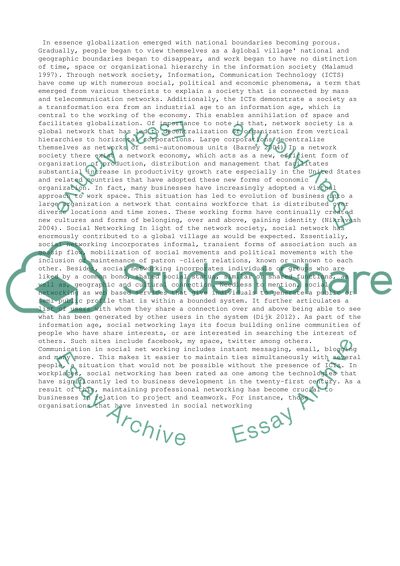Cite this document
(“What do you understand by the network society How has the network Essay”, n.d.)
Retrieved from https://studentshare.org/management/1473141-what-do-you-understand-by-the-network-society-how
Retrieved from https://studentshare.org/management/1473141-what-do-you-understand-by-the-network-society-how
(What Do You Understand by the Network Society How Has the Network Essay)
https://studentshare.org/management/1473141-what-do-you-understand-by-the-network-society-how.
https://studentshare.org/management/1473141-what-do-you-understand-by-the-network-society-how.
“What Do You Understand by the Network Society How Has the Network Essay”, n.d. https://studentshare.org/management/1473141-what-do-you-understand-by-the-network-society-how.


